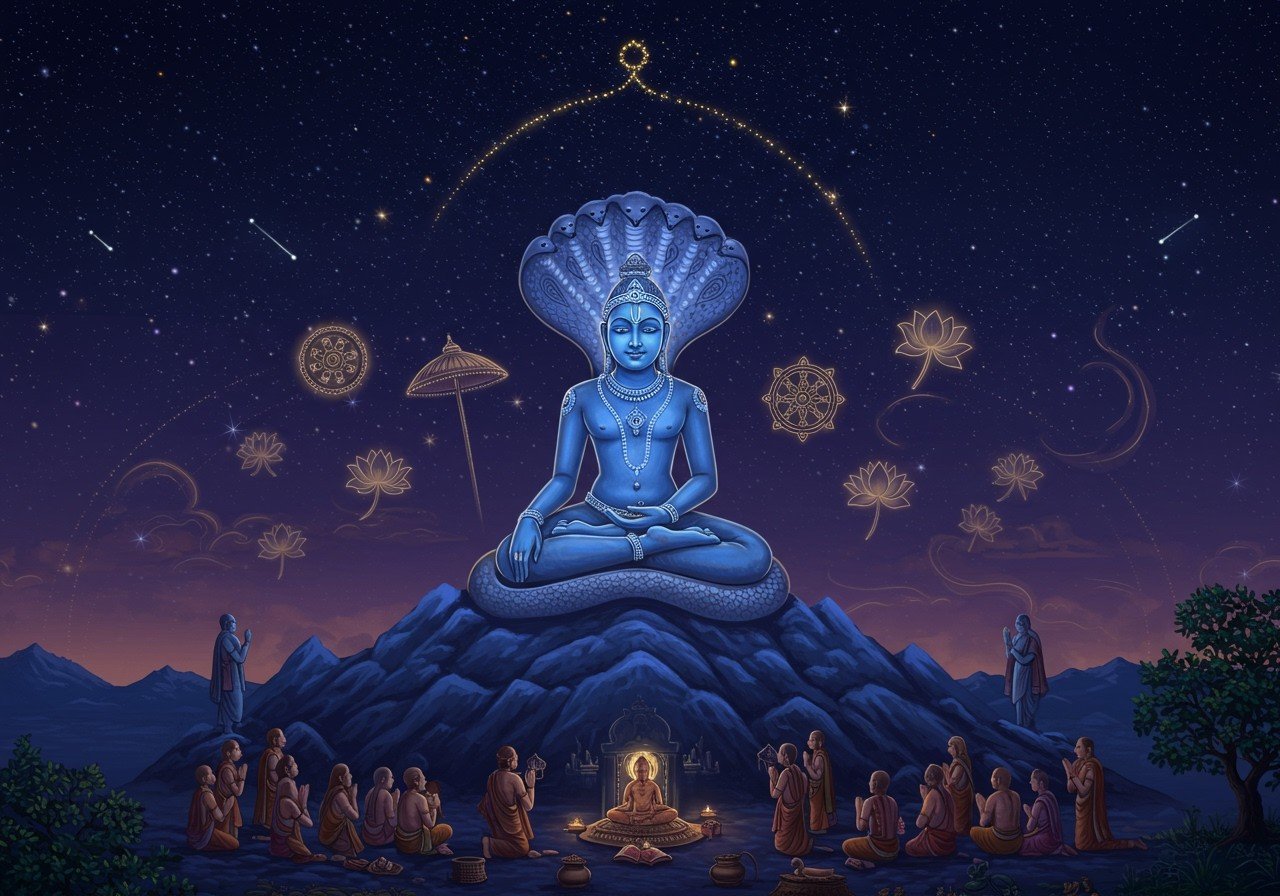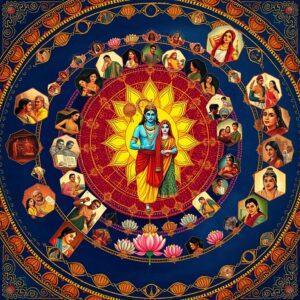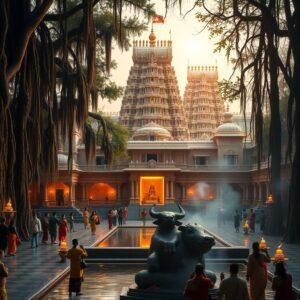
Understanding the significance of Parshvanatha, the 23rd Tirthankara of Jainism, is crucial for those seeking spiritual enlightenment. A historical figure believed to have lived around 250 years before Mahavira (who died in 527 BCE), Parshvanatha’s teachings, especially the four vows, hold immense importance. His liberation, celebrated as Moksha Saptami, particularly at Parasnath tonk in Jharkhand, is a testament to his spiritual journey.
Parshvanatha’s Life and Teachings
Born in Varanasi to a royal family, Parshvanatha chose a different path. At 30, he renounced worldly life, embarking on a spiritual quest. After 84 days of deep meditation, he attained Kevala Jnana (omniscience). His teachings, which greatly influenced later Tirthankaras like Mahavira, emphasized the Chaturyam (fourfold restraint):
- Ahimsa (Non-violence): This core principle emphasizes causing no harm to any living being, promoting compassion and peaceful coexistence. It encourages a mindful approach to all actions, minimizing harm in thought, word, and deed.
- Satya (Truthfulness): Honesty and integrity are paramount. This vow encourages speaking the truth with kindness and avoiding falsehoods, even in challenging situations. It promotes transparency and builds trust.
- Asteya (Non-stealing): Respecting others’ possessions and abstaining from taking anything that isn’t freely given forms the basis of this vow. It encourages contentment and gratitude for what one has.
- Aparigraha (Non-possessiveness): Detaching from material possessions and cultivating inner peace is central to this vow. It encourages a simple lifestyle, free from the burdens of excessive attachment to worldly goods.
Parshvanatha’s Nirvana (Moksha)
Parshvanatha achieved Nirvana (Moksha) at Sammet Shikhar (Parasnath Hill) in Jharkhand, a sacred pilgrimage site for Jains. This liberation from the cycle of birth and death marks a significant event in Jainism. Devotees commemorate this event with rituals and ceremonies, honoring his spiritual attainment.
Parshvanatha’s Enduring Legacy
Parshvanatha’s influence continues to resonate through temples, art, literature, and philosophy. His teachings have shaped Jain practices and continue to inspire ethical and environmental consciousness. Here are some ways his legacy endures:
- Temples and Shrines: Temples like the Parshvanath Temple in Khajuraho and the Parshvanath Jain Temple in Kolkata stand as testaments to his enduring influence, serving as centers for worship and cultural preservation.
- Art, Literature, and Iconography: Parshvanatha’s image and teachings are depicted in various art forms, scriptures, and symbols, enriching Jain culture and providing visual representations of his spiritual journey.
- Festivals: Celebrations like Parshvanath Nirvana Kalyanaka commemorate his life and teachings, keeping his memory alive and reinforcing the importance of his message within the Jain community.
Parshvanatha in Contemporary Jainism
Parshvanatha’s principles of non-violence, truthfulness, and non-possessiveness remain highly relevant today. These values align with modern ethical and environmental concerns, making his teachings timeless:
- Ethical and Environmental Consciousness: Parshvanatha’s emphasis on non-violence extends to all living beings and the environment, promoting a sustainable and compassionate lifestyle relevant to modern ecological concerns.
- Interfaith Dialogue: His teachings foster understanding and respect between different faiths, contributing to peaceful coexistence and a shared commitment to ethical principles.
Visiting Sammet Shikhar: A Pilgrimage to Parshvanatha’s Nirvana Site
Sammet Shikhar, where Parshvanatha attained Nirvana, is a revered pilgrimage site. Planning a visit involves:
- Transportation: Various options, including trains, buses, and private vehicles, are available to reach the site, allowing pilgrims to choose the most convenient mode of transport.
- Accommodation: Nearby hotels and lodges provide comfortable stays for pilgrims, ensuring a peaceful and convenient experience during their visit.
The site offers temples, shrines, and scenic views, providing a spiritually enriching experience. Explore more about Indian pilgrimages on poojn.in.
Poojn.in: Supporting Your Spiritual Journey
Poojn.in, India’s leading online store for cultural and religious goods, offers a wide selection of items to support your spiritual practices. Whether you’re seeking idols, puja accessories, or religious texts, poojn.in provides authentic and high-quality products. Discover our collection of Lord Shiva murtis and camphor for your puja needs. We strive to make your spiritual journey more fulfilling by providing convenient access to essential items.


